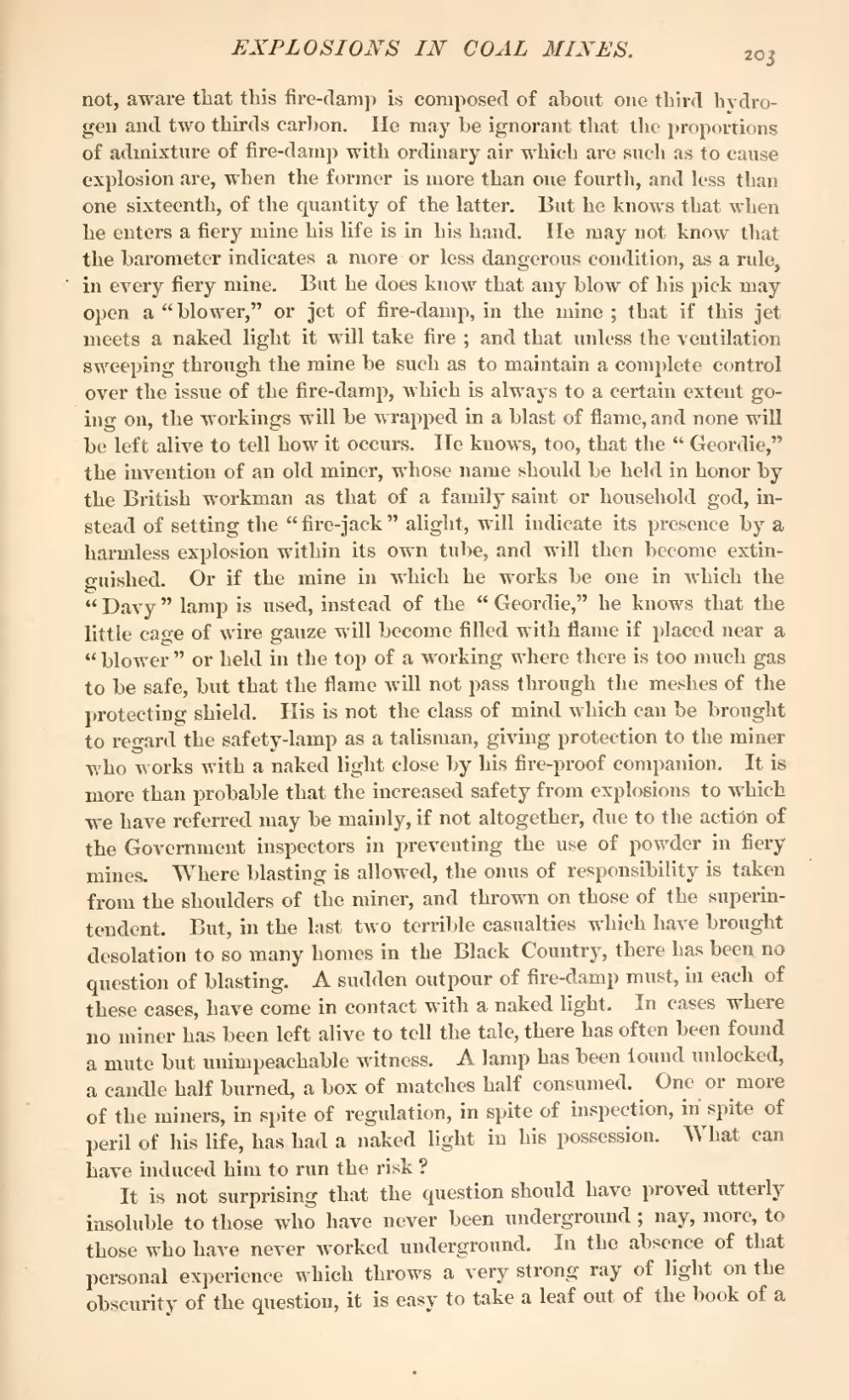not, aware that this fire-damp is composed of about one third hydrogen and two thirds carbon. He may be ignorant that the proportions of admixture of fire-damp with ordinary air which are such as to cause explosion are, when the former is more than one fourth, and less than one sixteenth, of the quantity of the latter. But he knows that when he enters a fiery mine his life is in his hand, he may not know that the barometer indicates a more or less dangerous condition, as a rule, in every fiery mine. But he does know that any blow of his pick may open a "blower," or jet of fire-damp, in the mine; that if this jet meets a naked light it will take fire; and that unless the ventilation sweeping through the mine be such as to maintain a complete control over the issue of the fire-damp, which is always to a certain extent going on, the workings will be wrapped in a blast of flame, and none will be left alive to tell how it occurs. He knows, too, that the "Geordie," the invention of an old miner, whose name should be held in honor by the British workman as that of a family saint or household god, instead of setting the "fire-jack" alight, will indicate its presence by a harmless explosion within its own tube, and will then become extinguished. Or if the mine in which he works be one in which the "Davy" lamp is used, instead of the "Geordie," he knows that the little cage of wire gauze will become filled with flame if placed near a "blower" or held in the top of a working where there is too much gas to be safe, but that the flame will not pass through the meshes of the protecting shield. His is not the class of mind which can be brought to regard the safety-lamp as a talisman, giving protection to the miner who works with a naked light close by his fire-proof companion. It is more than probable that the increased safety from explosions to which we have referred may be mainly, if not altogether, due to the action of the Government inspectors in preventing the use of powder in fiery mines. Where blasting is allowed, the onus of responsibility is taken from the shoulders of the miner, and thrown on those of the superintendent. But, in the last two terrible casualties which have brought desolation to so many homes in the Black Country, there has been no question of blasting. A sudden outpour of fire-damp must, in each of these cases, have come in contact with a naked light. In cases where no miner has been left alive to tell the tale, there has often been found a mute but unimpeachable witness. A lamp has been found unlocked, a candle half burned, a box of matches half consumed. One or more of the miners, in spite of regulation, in spite of inspection, in spite of peril of his life, has had a naked light in his possession. What can have induced him to run the risk?
It is not surprising that the question should have proved utterly insoluble to those who have never been underground; nay, more, to those who have never worked underground. In the absence of that personal experience which throws a very strong ray of light on the obscurity of the question, it is easy to take a leaf out of the book of a

